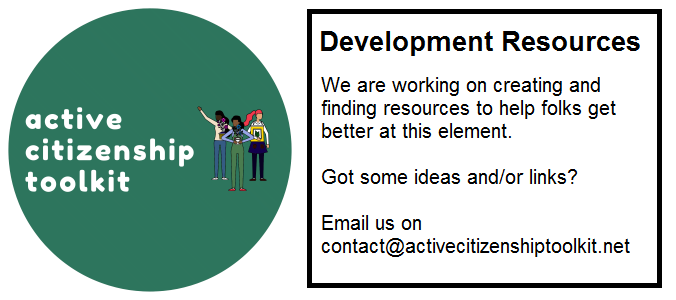Element Descriptor
Human thinking tends not to be terribly logical. We are fulling of false equivalence, irrelevancies, circularities, tautologies etc. Being able to spot these in other people’s thinking AND OUR OWN will save a certain amount of heartache and aggravation.
Level descriptors
| Novice | Practitioner | Expert | Ninja |
|---|---|---|---|
| You can, having just brushed up on your “logical fallacies for beginners” spot some of the more obvious/blatant errors in someone’s written argument (ad hominem, confusing correlation and causation) and explain using tried-and-tested metaphors | You can spot and describe most of the common logical fallacies in someone else’s written or oral arguments, and deal with them pithily, leaving the person unlikely to try that shit again, at least as long as you are around. | On little sleep and only six cups of coffee to compensate, you can counter a Gish Gallop at a steady canter, with local and innovative metaphors to explain where your antagonist is (deliberately) going wrong. You are avoided by those who would like to pull the wool over others’ eyes. | You can anticipate, from previous patterns of nonsense, what is coming next, and nip it in the bud. You are able to deal with complex and interlocking logical fallacies while maintaining good humour and clarity of thought and speech. Why? Well, it’s because you are a Leo… |
Element Overview Essay
This is a draft. If something doesn’t make sense, or you see typos, or if you have further ideas, please email us on contact@activecitizenshiptoolkit.net
The reason that logical fallacies are not spotted, and dealt with is to do with the architecture of the human brain. It’s a kludge. It’s there to stop you being eaten by a sabre-toothed tiger, and so has all sorts of shortcuts and Heath Robinson contraptions that are not like a Vulcan brain. Also, we have a huge number of confirmation biases around confirmation, optimism, frequency vividness you name it. And again, in day-to-day life, these don’t matter.
The consequences of not spotting your own logical fallacies can be very severe because you can advance on a false prospectus. Other groups will spot your fallacies, pointing them out to you. Not in a quiet supportive way necessarily, but also in public with mockery and ridicule, undercutting your credibility or forcing you into defensiveness, which will also undercut your credibility.
The fixes are really difficult and you’ll never master them. Daniel Kahneman in his “Thinking fast and slow”, talks about the best you can do is compensate but you never overcome.
We just crooked timber. That’s how it is.
But it involves becoming familiar with the more common logical fallacies that exist, and especially the logical fallacies that are common around your issue or in your subculture, and to gently and appropriately, point them out to your friends and colleagues, and to ask them to do the same to you. And when they point them out, as long as they’re doing it in ways that are not deliberately wounding, to thank them.
And if they ARE doing it in ways that are trying to deliberately wound , don’t react, thank them for having inadvertently helped you and try and deal with them accordingly. But I can’t emphasise enough that logical fallacies are always going to be with us. It’s not a question of getting rid of them. It’s a question of minimising their frequency and coping with them before they become a bigger problem and never getting complacent
Development Resources

Assessment Resources

